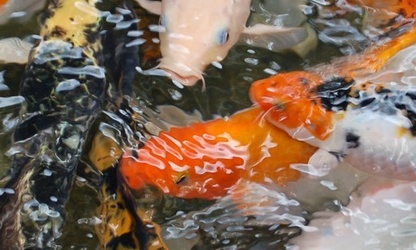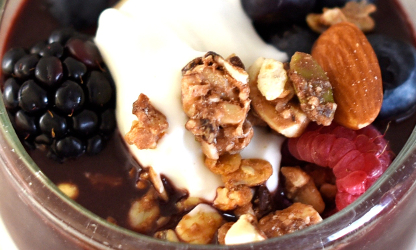

Effectiveness of bacteriophages in reducing Escherichia coli O157:H7 on fresh-cut cantaloupes and lettuce.
Journal of Food Protection, 2009
Sharma, M., Patel, J.R., Conway, W.S., Ferguson, S., and Sulakvelidze, A.
Abstract
Consumption of produce contaminated with Escherichia coli O157:H7 has resulted in cases of foodborne illness. We determined the efficacy of a mixture of three E. coli O157:H7-specific bacteriophages (ECP-100) in reducing the number of viable E. coli O157:H7 on contaminated fresh-cut iceberg lettuce and cantaloupe. E. coli O157:H7 was spot inoculated on lettuce pieces (9 cm2) with a population of 3.76 log CFU/cm2, allowed to dry, and then sprayed with a control (phosphate-buffered saline) or ECP-100 to deliver 7.98 log PFU/cm2 to lettuce stored for 2 days at 4 degrees C. Cut pieces of cantaloupe were spot inoculated with E. coli O157:H7 (4.55 log CFU/ml) and treated with the control or ECP-100 (6.69 log PFU/ml), and then stored at 4 or 20 degrees C for up to 7 days. On days 0, 2, 5, and 7, cantaloupe samples were homogenized, and populations of E. coli O157:H7 were enumerated. Populations of E. coli O157:H7 on lettuce treated with ECP-100 on 0, 1, and 2 days (0.72, <0.22, and 0.58 log CFU/cm2 of lettuce) and stored at 4 degrees C were significantly (P < 0.05) lower than those treated with the control (2.64, 1.79, and 2.22 log CFU/cm2), respectively. Populations on cut cantaloupes treated with ECP-100 on days 2, 5, and 7 (0.77, 1.28, and 0.96 log CFU/ml) and stored at 4 degrees C were significantly lower than those cut cantaloupes treated with the control (3.34, 3.23, and 4.09 log CFU/ml), respectively. This study is the first to show the effectiveness of bacteriophages to reduce E. coli O157:H7 on fresh-cut lettuce and cantaloupes.
Target
Escherichia coli (STEC)
Food Group
Fresh produce
Food Product
Fresh-cut cantaloupes and lettuce
Product
Fresh-cut cantaloupes and lettuce





